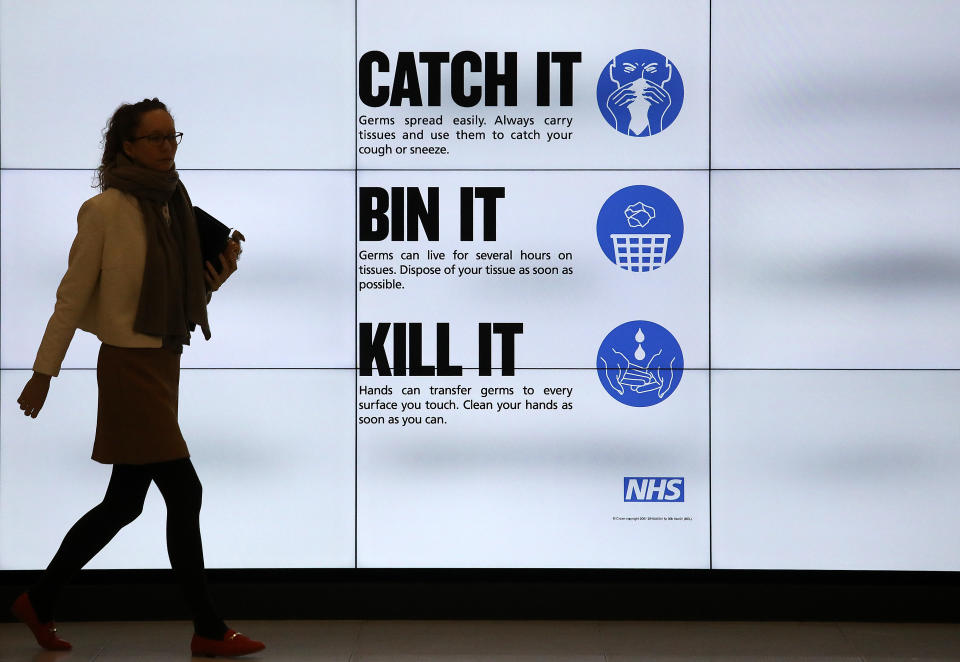What to Watch: Benchmark UK gilts turn negative and oil dives amid market 'carnage'

Here are the top business, market and economic stories you should be watching today in the UK, Europe, and abroad.
Benchmark UK government bond yields turn negative for first time
The yield on benchmark government bonds turned negative for the first time ever on Monday, with demand soaring amid a stock market rout.
Investors rushed for the relative safety of government bonds as equities crashed on a tumbling oil price and fresh coronavirus fears. The negative yield means investors accepted they would receive no return on their cash, effectively paying to help it keep its value by putting it in gilts.
Yields turned negative on two-, three-, four-, six- and seven-year benchmark government bonds as markets opened, according to Refinitiv data, before recovering slightly into positive territory.
Meanwhile US 10-year Treasury yields also sank to new record lows, and appeared set for their biggest one-day drop since 2011.
Oil crashes as Saudi Arabia starts price war
Crude oil suffered one of the biggest daily price falls on record on Monday, after Saudi Arabia moved to start a price war.
State oil company Saudi Aramco on Saturday said it would cut the price of crude by $6 (£4.5) per barrel in April, according to Reuters. It marks the steepest price cut ever from Saudi Arabia.
The price cut, and reports of a price war, sent international oil benchmarks tumbling on Monday morning. Crude oil (CL=F) fell 30% at the open in Asia and crude was still down 25% to $30.59 by 8.15am GMT. It marked the biggest one-day fall for crude prices since the Gulf War, when prices fell 34.8% in 1991. Brent (BZ=F) was down 23.7% to $34.52 at the same time.
Major oil companies saw steep share price declines and analysts warned US shale producers could face a credit crunches when markets open in North America later today. The currencies of major oil exporting nations also came under pressure.
“There are no winners only the less badly hurt,” UBS analyst Jon Rigby wrote in a note on Monday.
In London, BP (BP.L) and Shell (RDSB.L) both fell over 20% at the open. The steep declines contributed to a huge sell-off on the FTSE 100.
‘Utter carnage’ as global markets crash
Global stock markets nosedived on Monday amid what one analyst called “utter carnage,” with investors fleeing as the price of oil plummeted and the coronavirus crisis deepens.
The FTSE 100 (FTSE) nosedived on Monday morning and plummeted by 8.7% as markets opened, in the fourth biggest one-day fall on record. It was trading 6.8% lower at around 10.20am
Other European markets also opened sharply in the red. In Germany, the Dax (^GDAXI) index of its leading firms was trading 6.2% lower than when markets closed on Friday. In France, the CAC 40 (^FCHI) was down 6.7%. Asian markets had closed between 3% and 5% lower overnight.
“This will be remembered as Black Monday. If you thought it couldn’t get any worse than the last fortnight, think again... it’s utter carnage out there,” said Neil Wilson, chief market analyst at Markets.com.
Futures were also pointing to a sharp fall in US stocks when markets open later on Monday. S&P 500 futures (ES=F) and Dow Jones Industrial Average futures (YM=F) were both trading 4.9% lower, while Nasdaq futures (NQ=F) were 4.8% lower at around 6am eastern daylight time.

 Yahoo Finance
Yahoo Finance 